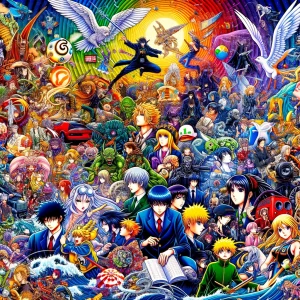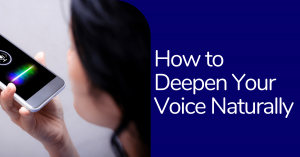Do you choose the subtitled or dubbed movies if you want to view it but don’t speak the language? Any film enthusiast you talk to is going to have strong feelings about what the “correct” decision is. However, is one actually superior to the other?
The debate over subtitles vs. dubbing persists in light of the growth of world cinema and the simplicity of access it now enjoys thanks to streaming services. We’ll examine the advantages and disadvantages of each approach.
Before comparing subtitles and dubbing sound, it’s helpful to grasp what each of them is.
With the exception of situations where they are crucial to the plot, they rarely describe music or sound effects.

People who have trouble hearing frequently utilize subtitles to make sure they don’t miss any dialogue. However, subtitles can also be used in other situations, such as when there is a problem with the audio mixing in the video or when a character has a hard-to-understand accent.
During the post-production dubbing process of a film or television programme, the original spoken dialogue is replaced with new dialogue, typically in a different language.
Evolution of Dubbing
Dubbing, or the practice of translating and re-recording dialogue in a foreign language film in another language, has a long history that dates back to the early days of cinema.
One of the earliest examples of dubbed films was the Italian film industry’s use of dubbing in the 1930s. At the time, many Italian films were being released internationally, and dubbing was seen as a way to make these films more accessible to non-Italian speaking audiences. Dubbing movies became popular in other countries as well, and by the 1940s, it was being utilized in the United States and other countries around the world to translate and release foreign language films in local languages.
Reasons Why Dubbed Movies Can Sound bad
Dubbed movies, also known as foreign language films that have been translated and re-recorded in a different language, can often sound awkward or unnatural because the dubbed dialogue does not always match the lip movements of the original actors.
- Lip sync issues: One of the biggest challenges in dubbing is getting the dubbed audio to match the movements of the actors’ lips. This is especially difficult when the original language and the dubbed language have different rhythms and sounds, which can cause the dubbed audio to be out of sync with the visual.
- Poor quality translations: Dubbed movies often rely on translations of the original script, and if the translations are poor or inaccurate, it can affect the overall quality of the dubbed version.
- Lack of authenticity: Dubbed movies can often lack the authenticity of the original version, as the actors in the dubbed version are usually not the same as the original actors. This can lead to a disconnect between the dubbed audio and the visual, making the dubbed version feel less genuine.
- Poor dubbing quality: Dubbing is a complex process that requires a lot of skill and attention to detail.
Another reason that dubbed movies may sound bad is that the voice actors who perform the dubbed dialogue may not always be able to capture the same tone, inflection, or emotion as the original actors.

Additionally, the quality dubbing audio itself can also be a factor. Poorly produced dubbed audio with low-quality recording equipment or undertrained voice actors can contribute to the overall poor quality of the dubbed movie experience.
Overall, there are many factors that can contribute to why dubbed movies can sound bad. By addressing these issues and improving the quality of the dubbing process, it is possible to create dubbed movies that are more enjoyable for audiences.
Benefits of Subtitles
There are several benefits to using subtitles, both for the viewer and for the film industry as a whole. Some of the main benefits of subtitles include:
- Accessibility: Subtitles can make it possible for people who are hard of hearing to enjoy films and television shows. They can also be helpful for people who are learning a new language and want to improve their comprehension skills.
- Cultural enrichment: Subtitles can provide an opportunity for viewers to learn about different cultures and languages through film and television.
- Improved comprehension: Subtitles can help viewers understand the dialogue and plot of a film or television show more easily, especially if the audio quality is poor or if there is a lot of background noise.
- Wider audience: Subtitles can make it possible for a film or television show to be released and enjoyed in a wider range of countries and languages, which can increase its potential audience and revenue.
Overall, subtitles can provide a number of benefits for viewers and the film industry, making it possible for more people to enjoy and appreciate foreign language films and television shows.

Correlation with Poor Foreign Language Performance
There is a correlation between a country’s poor performance in foreign language learning and the prevalence of dubbed films in that country. In countries where foreign language education is not emphasized or where there are fewer resources available for language learning, it is more common to find dubbed films as a way to make foreign language content more accessible to audiences.
On the other hand, in countries where foreign language education is more prevalent and there is a greater emphasis on language learning, it is more common to find subtitled films, as audiences in these countries are more likely to have a higher level of foreign language proficiency.
While dubbed films can make foreign language content more accessible to audiences, they can also limit the opportunities for language learning and cultural exchange.
Subtitling vs Dubbing- Who is the Winner ?
It is difficult to determine a “winner” between subtitling and dubbing, as both have their own benefits and drawbacks. Ultimately, the decision of whether to use subtitles or dubbing will depend on the specific needs and preferences of the target audience, as well as the goals and objectives of the film or television show being translated.
On the other hand, some of the main benefits of dubbing include:
- Making foreign language content more accessible to audiences who may not have a high level of foreign language proficiency.
- Improving the overall viewing experience for audiences by allowing them to focus on the visual aspect of the film or television show without having to read subtitles.
Ultimately, the choice between subtitling and dubbing will depend on the specific needs and goals of the film or television show, as well as the preferences and language skills of the target audience.
Conclusion
To summarize, there are several reasons why dubbed movies may sound bad:
- Dubbed dialogue often does not match the lip movements of the original actors, which can make the dubbed version feel awkward or unnatural.
- Voice actors who perform the dubbed dialogue may not always be able to capture the same tone, inflection, or emotion as the original actors, resulting in dialogue that feels disconnected from the action on screen.
- The quality of the dubbed audio itself can also be a factor. Poorly produced dubbed audio with low-quality recording equipment or undertrained voice actors can contribute to the overall poor quality of the dubbed movie experience.
- Dubbing can also limit the opportunities for language learning and cultural exchange, as viewers may not have the opportunity to hear and understand the original language of the film.
Overall, while dubbed films can make foreign language content more accessible to audiences, they can also result in a less authentic and natural viewing experience.
Frequently Asked Questions
Why is movie dubbing so bad?
Dubs can also be bothersome because what you hear does not correspond to the actors’ mouth movements. To avoid this, the script is usually changed to more closely match what’s on-screen; however, this has another disadvantage in that you’re hearing a filtered version of the original.
Are dubbed movies bad?
A bad dub will reduce audience engagement for obvious reasons. The more conscious the viewer is of the voice they are hearing – whether it is due to a poor performance, a lack of sync, or a poor mix – the more difficult it is for viewers to suspend disbelief and surrender to the story.
Why are so many movies dubbed?
Some content creators prefer dubbing because it allows them to add sound effects or replace musical scores for more pleasing and compelling voice quality. The voices in dubbed movies may differ from the original content. Consultation with a localization provider is the first step in the dubbing process.
.webp)










